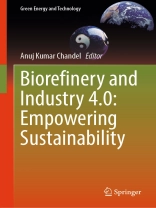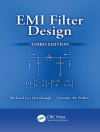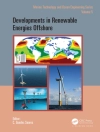This book provides a comprehensive overview of the latest advances in the production of low carbon chemicals and biofuels from renewable feedstock, including pilot, demo, and commercial-scale technologies. It highlights the role of Industry 4.0 in improving the efficiency and affordability of biorefineries, ultimately leading to the production of bio-based molecules and energy with low carbon and water footprints.
Drawing on the expertise of established researchers, academics, and engineers, the book presents a range of informative chapters on the subject. It explores the key elements of Industry 4.0, such as, interconnectivity and smart process automation, and shows how these can be harnessed to revolutionize industrial processes and offer finished products in a cost-effective manner.
With its emphasis on sustainability and cutting-edge technology, this book is an essential resource for anyone interested in the future of low carbon chemistry and bioenergy production.
Tabela de Conteúdo
Renewable carbon in Industry 4.0: Towards the sustainable bio-economy.- Precision biomass collection, storage and transportation of feedstock at biorefinery gate.- Technical aspects and new developments in first generation, second generation and third generation biorefinery.- Process automation in smart biorefinery for renewables production.- The realm of smart biomass degrading enzymes in low carbon fuels and chemicals production.- Sustainable ethanol production and high add value by-products in biorefinery.- Industry 4.0 in development of new crops, smart enzymes and designer bugs in biofuels production.- Embracing Industry 4.0 ingredients in synthetic biology for the development of carbon neutral economy.- Industry 4.0 and 3D printing: advancing the generation of smart materials in biorefineries.- Nanocellulose and nanolignin in plethora of new sustainable applications.- Possibilities, benefits and challenges of applying lean manufacturing in biorefineries.- Supply chain and value chain analysis in biorefineries.- Economic, social, political and organizational challenges in Industry 4.0.- Carbon capture and utilization (CCU) to chemicals through Industry 4.0.- Biotechnological production of vegan protein through Industry 4.0 to cater the growing demand in society.
Sobre o autor
Dr. Anuj K. Chandel is currently a professor at Engineering School of Lorena, University of São Paulo (USP), Lorena, Brazil. He has over 22 years’ research experience working on the production of industrial enzymes, biofuels and bio-chemicals working in industries (Dalas Biotech Ltd, Bhiwadi, India; Celestial Labs Ltd, Hyderabad, India and Centro de Tecnologia Canaviera-CTC, Piracicaba, São Paulo) for 8 years and 15 years in academics (University of São Paulo, Brazil; University of Stellenbosch, South Africa; University of Arkansas, Fayetteville, USA). Anuj has earned MBA degree with the specialization in biorefinery commercialization from Luiz de Queiroz College of Agriculture (ESALQ)-University of São Paulo, Brazil. He has published over 115 peer-reviewed scientific papers, 56 books chapters and has edited 15 books on various aspects of industrial biotechnology. Dr. Anuj has travelled to many countries like the USA, Brazil, Canada, Mexico, South Africa, Turkey and Ireland. Ad-hoc reviewer of research projects from various government and private funding agencies from Italy, South Africa, Germany, USA, India and Brazil. Dr. Anuj pivots between milligrams to kilograms, corporate and sustainability with a deep understanding of key business drivers and process design.












